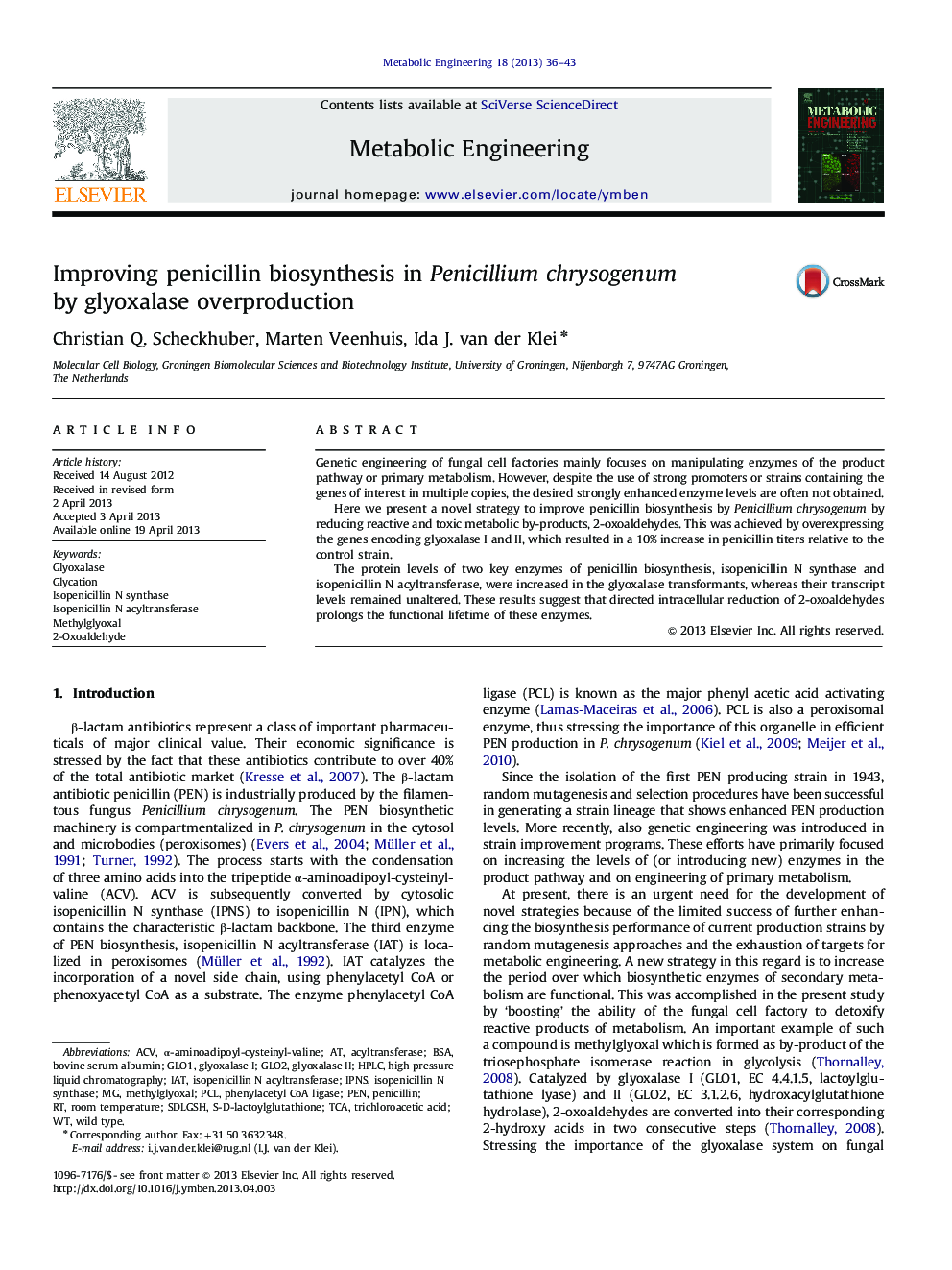| Article ID | Journal | Published Year | Pages | File Type |
|---|---|---|---|---|
| 31553 | Metabolic Engineering | 2013 | 8 Pages |
•Overexpression of PcGlo1 and PcGlo2 in P. chrysogenum DS17690 increases isopenicillin N synthase and isopenicillin N acyltransferase protein levels.•Overexpression of PcGlo1 and PcGlo2 leads to decreased methylglyoxal-mediated protein modification.•PcGlo1 and PcGlo2 overexpression results in enhanced penicillin production.
Genetic engineering of fungal cell factories mainly focuses on manipulating enzymes of the product pathway or primary metabolism. However, despite the use of strong promoters or strains containing the genes of interest in multiple copies, the desired strongly enhanced enzyme levels are often not obtained.Here we present a novel strategy to improve penicillin biosynthesis by Penicillium chrysogenum by reducing reactive and toxic metabolic by-products, 2-oxoaldehydes. This was achieved by overexpressing the genes encoding glyoxalase I and II, which resulted in a 10% increase in penicillin titers relative to the control strain.The protein levels of two key enzymes of penicillin biosynthesis, isopenicillin N synthase and isopenicillin N acyltransferase, were increased in the glyoxalase transformants, whereas their transcript levels remained unaltered. These results suggest that directed intracellular reduction of 2-oxoaldehydes prolongs the functional lifetime of these enzymes.
